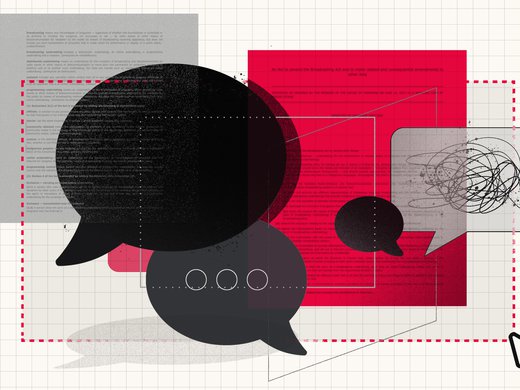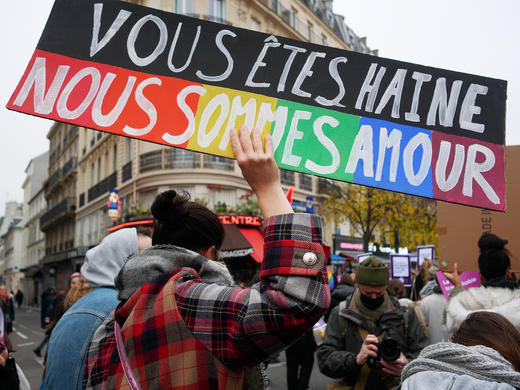The stabbing attack that wounded three people in a gender studies class at the University of Waterloo, Ontario, on June 28 sparked debate about how universities should address violence on campuses. In response to the attack, which police regard as a hate-motivated crime related to gender expression and identity, students and university faculty have demanded change. Some commentators are calling on universities to strengthen security measures, not an easy task as universities are generally oriented toward public access, with unlocked buildings and open listings of class locations and faculty offices. Security measures, however, tend to disproportionately target racialized and minority students, including LGBTQ+ students whom such measures would be intended to protect.
Largely missing from these discussions is the vital role universities should play at the institutional level in addressing hateful, violent speech online, especially on social media. Universities pride themselves as sites of free speech. Critical, challenging, sometimes controversial speech is an essential part of scholarship and teaching, and this includes discussions of sexuality and gender identity and expression. However, to address violent hate, we need to have a better understanding what we mean by free speech and how it can silence certain voices.
The University of Waterloo attack can be understood as a horrifying but unsurprising result from a toxic public sphere.
Free speech is often conceptualized as a public square in which all are equally free to speak. This view overlooks the historical and contemporary reality that some groups have rarely had the opportunity to speak freely and without fear. As I’ve written previously, unfettered free speech can destabilize society, with bad speech driving out people and good speech from the public square. Research by US legal scholars Danielle Keats Citron and Mary Anne Franks demonstrates that people self-censor or leave online life because of hateful, abusive speech. Public debate is poorer and less diverse when journalists, artists, teachers and politicians leave social media because of racism, misogyny and discrimination, including rape and death threats, from users.
Hateful speech can also incite and justify violence against certain groups. University of Waterloo professors Shana MacDonald and Alysia Kolentsis argue that dehumanizing speech against LGBTQ+ people is a form of stochastic terrorism, a public demonization of a specific group that results in the incitement of violence against that group. The University of Waterloo attack can be understood as a horrifying but unsurprising result from a toxic public sphere. Similar violent rhetoric was evident in the 1989 murder of 14 women at École Polytechnique in Montreal in which the shooter condemned feminists.
Universities must take steps to counter the twin threats of silenced speech and hateful speech. First, universities need to take professors’ online safety seriously. Universities, and society broadly, benefit from scholars who work as public intellectuals by sharing research findings in the media and by maintaining an active presence on social media. Universities should have robust information technology policies to protect scholars who are harassed, doxed or threatened online. Instead of leaving professors to deal with threats alone, universities should report harassment and threats, whether to law enforcement or to the social media companies facilitating the abusers’ speech, while also providing effective measures to address professors’ safety concerns.
Second, universities need to establish a full account of the nature and extent of threats against professors. Doing so includes documenting, publicly reporting and responding to threats made against professors. This mapping will provide a clearer picture of the threats for universities and for all levels of government so that they may shape effective policy responses.
Third, universities need to take seriously that online threats can have real-world manifestations. Universities need to enact effective policies to deal with violence on campus, including with students who utter threats or are violent. One professor, for instance, criticized their university’s response to threat-uttering students as “anemic” because it only enacts measures to protect students and staff once a pattern of escalation is detected, not after the person’s first threat.
Finally, universities need to weigh in as institutions to endorse and shape policy to counter violent, hateful speech online. The federal government’s online harms bill, although I’ve argued it is quite flawed, has the potential to be a good first step in regulating hate speech online. Those who would describe universities’ weighing in like this as activism are correct. Universities should be activists in protecting their students and faculty, and in robustly safeguarding human rights.
The University of Waterloo attack was not a singular event. Anti-LGBTQ+ protests with hateful speech are becoming increasingly commonplace across Canada, occurring, for example, outside secondary schools and school boards in Regina, Ottawa, Halifax and St. John’s. A rise in violence is also evident in the United States, where legislators have introduced a series of homophobic and transphobic bills.
Universities urgently need to take action at the institutional level to counter and prevent violence on campus and to institute effective policies to protect university employees and students.



